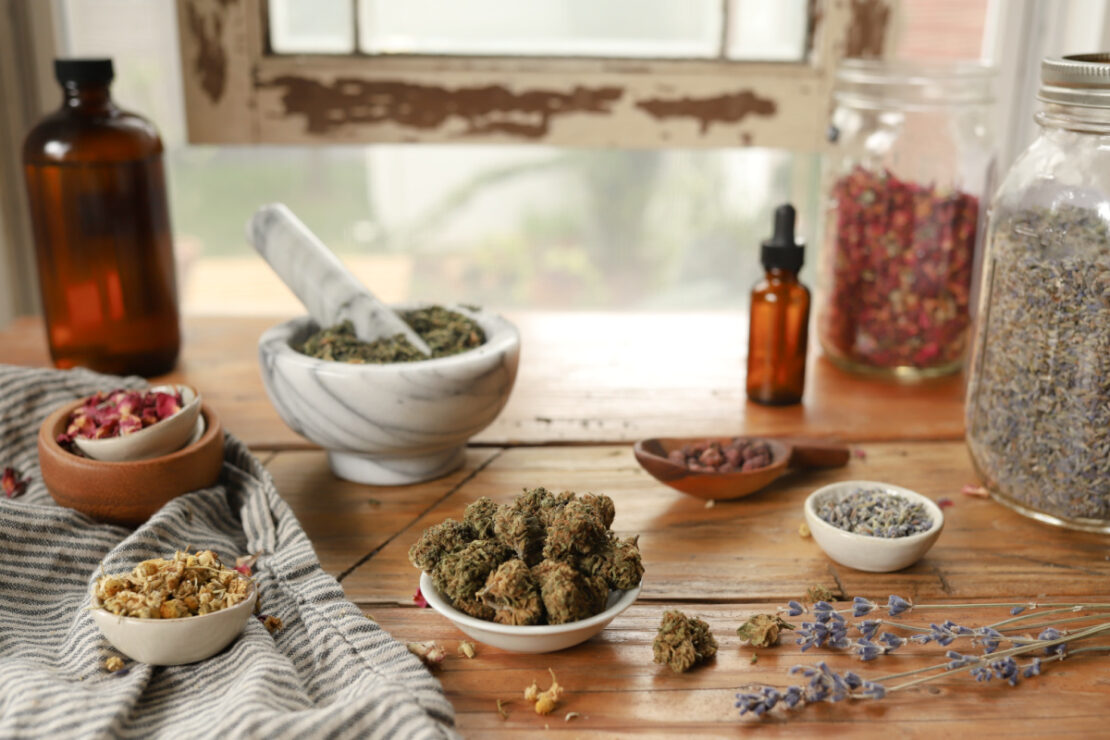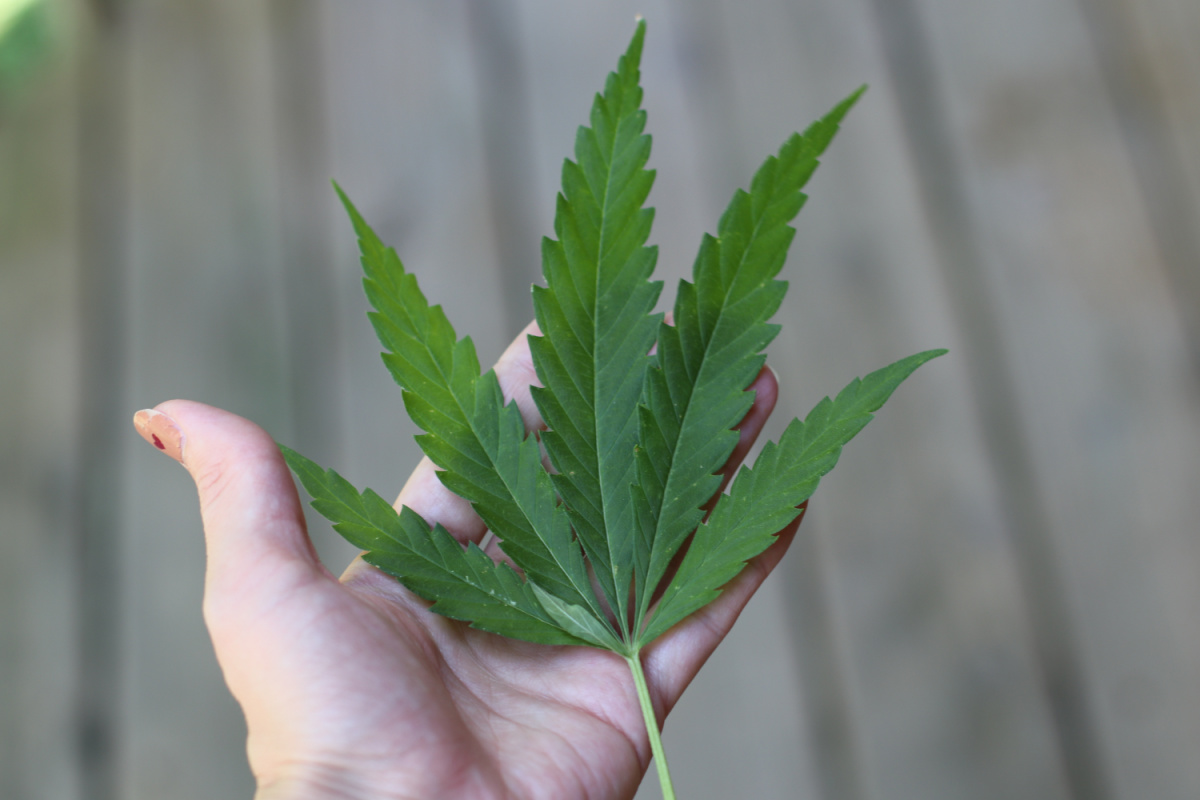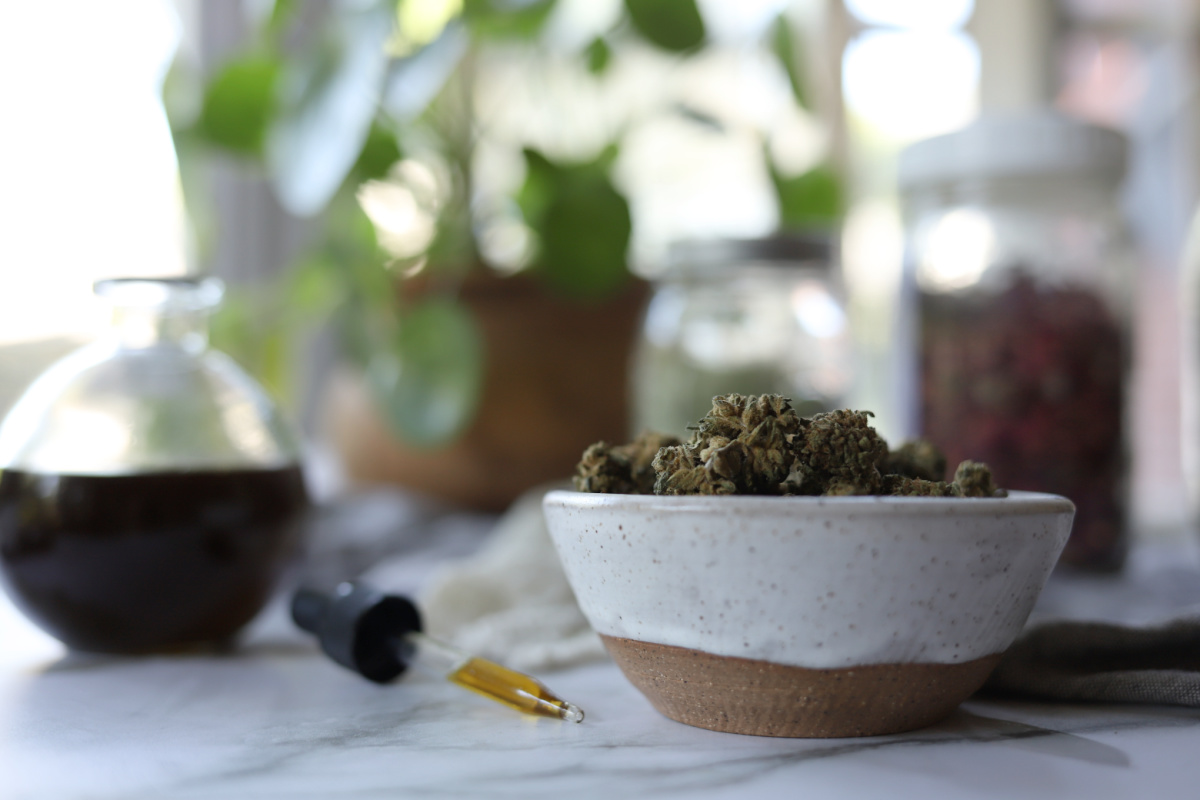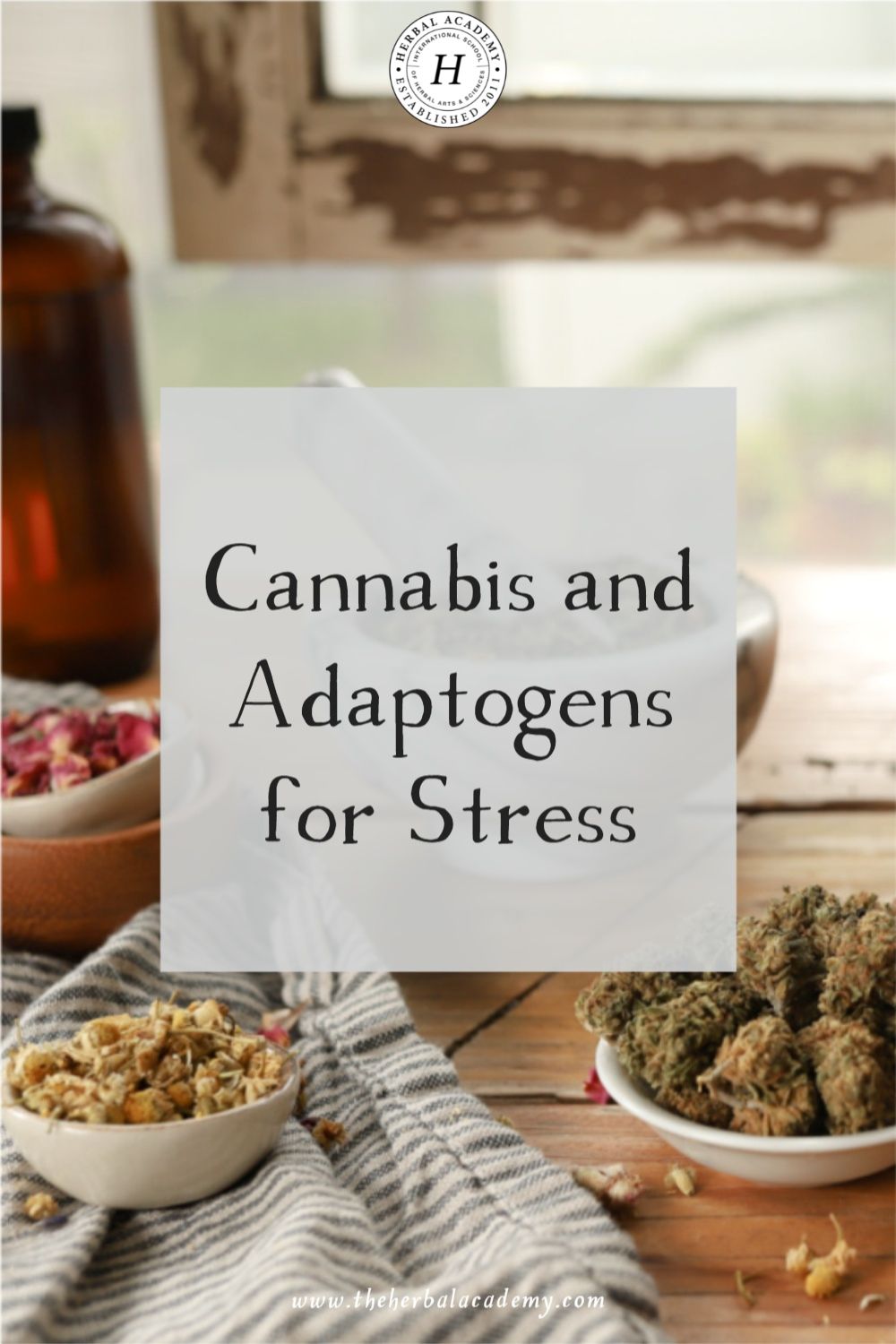
Cannabis and Adaptogens for Stress
When it comes to modern-day living, it can seem like there is no relief in the frequency of life’s demands and the required fast pace to stay on top of things. This go-go-go way of living can wreak havoc on our nervous system. Over time, it can begin to rewire our brain to be in a “fight or flight” state more frequently than a “rest and repair” state. This means that our body is not spending as much time healing itself and chronic inflammation (and other imbalances) can occur from the frequent stress your body is under.
While there are many lifestyle tips to help combat stress (meditation, forest bathing, tapping, journaling, talk therapy, play, exercise, etc…) plants can also add some superpower support to our body just when you need it. In particular, cannabis (Cannabis sativa) and a category of plants called “adaptogens” can help to soothe stress—and their effects are impressively synergistic when used together.

The Effects of Stress
At Prismatic Plants, we look at stress as one of the root causes of many chronic health issues. This is because stress keeps our body in a state of being that prevents our normal everyday healing functions that maintain and repair. Stress can be triggered by situations that create worry or urgency prompting the body to release stress hormones in a primitive effort of self-preservation. In modern times, we aren’t being chased by large predators but instead by neverending deadlines. Our physiology hasn’t fully adapted to the demands of everyday life as we live it in modern society, and as such, chronic stress has become the norm for many people.
Chronic stress can put a strain on your adrenal glands (Edwards et al., 2011) and compromise your nervous system, which plays a big role in keeping the body in homeostasis (when all of the body systems are in a state of balance that produces optimal health). Stress inhibits your immune function making you more susceptible to harmful invaders (e.g. bacteria and viruses), which can lead to a host of issues that are due to chronic inflammation, as well as interrupting the daily downtime our bodies need to recharge (Cleveland Clinic, 2017). Stress takes a toll on your brain health and can contribute to mood changes including depression (Leonard, 2000). Sound intense? It can be, but there is plenty you can do to support your body on the day-to-day. One of which is adding powerful plant allies to your wellness toolkit for quashing stress and anxiety.

How Does Cannabis Help With Stress?
The endocannabinoid system is a network of receptors found in many different systems in our bodies. We naturally produce endocannabinoids, which attach and work with these receptors to keep our bodily systems regulated and in optimum functioning order. The endocannabinoid system is partially responsible for many of our basic functions: mood, appetite and metabolism, reproduction, sleep, pain, and immunity to name a few. When someone is dealing with chronic stress, the endocannabinoid system may become dysregulated, leaving one susceptible to alterations in pain perception, depression, and potentially other conditions related to the endocannabinoid system (Moreno et al., 2016). (Learn more about the endocannabinoid system in The Canna+Herbs Course.)
Cannabis (and hemp, which is a type of cannabis) contains phytocannabinoids that mimic the body’s endocannabinoids. These phytocannabinoids attach and work with the endocannabinoid receptors similar to the ways our own endocannabinoids do. This means that when we ingest (or inhale) cannabis, it may work with these endocannabinoid receptors to help regulate inflammation and stress, and bring us back toward homeostasis (the ideal state of health). We are learning more each day with human clinical research into all the effects of cannabis on the endocannabinoid system. Preliminary research to date suggests that cannabidiol (CBD), one of cannabis’s phytocannabinoids, specifically interacts with our limbic and paralimbic systems helping to de-escalate our fight-or-flight response when faced with a stressful situation (Bergamaschi et al., 2011). This is why we focus on CBD-dominant strains of cannabis (full spectrum hemp) in our Prismatic Plants products.

How Do Adaptogens Help With Stress?
Adaptogens are not one type of plant, like cannabis, but rather a class of plants that offer many safe and supportive properties (Note: adaptogens, just like other beneficial herbs, have specific indications and contradictions depending upon your health issues). In order to be classified as an adaptogen, an herb has to be non-toxic, produce a normalizing influence on physiology, and help increase the body’s resistance to stressors. The last one is key here. Many adaptogens are plants that are able to adapt to harsh living conditions. It is this innate resilience that makes these plants so powerful when adapted into your daily life. When we ingest an adaptogenic herb, it helps our bodies better respond and manage stressors, just like it had to do in order to survive in the wild. These stressors could be environmental, physiological, or dietary.
Whereas cannabis targets the body’s endocannabinoid system, adaptogenic herbs work on the Hypothalamic-Pituitary-Adrenal (HPA) axis, which is directly responsible for regulating our nervous system and stress response (remember that fight-or-flight mode we discussed earlier?). When we ingest adaptogens over time, our body begins to better adapt to daily stressors and lessen its stress response. This means that with regular consumption of adaptogens we may not produce excessive amounts of cortisol, adrenaline, and noradrenaline. More regulated stress hormones mean less stress and anxiety, which ultimately means a better mood and more vitality (Winston & Maimes, 2007).

How Do Cannabis and Adaptogens Work Together to Combat Stress?
While these superpower plants each do great things on their own to help your body find balance and battle chronic stress, together cannabis and adaptogens are an absolute dream team! Cannabis starts to work immediately on the effects of stress while adaptogens build their stress-fighting benefits in the long run with consistent use. As you are taking these herbs, you are supporting the endocannabinoid system and the HPA axis, both of which are responsible for regulating and aiding your nervous system – ultimately helping the body more effectively fight stress and return to homeostasis (aka optimal health). With the busy daily demands that life has to offer, this synergistic duo helps to ensure we can keep both our mood and productivity high. This is why at Prismatic Plants, we include both cannabis and adaptogens in our formulas to help combat stress.
To learn more about using cannabis to support your health, check out the Herbal Academy’s Canna+Herbs Course!
Sarah Polansky is the founder of Prismatic Plants, an herbal product line that combines sustainably sourced adaptogens and herbs with organic full-spectrum hemp (CBD, CBDa, CBN, CBG) to support relaxation, sleep, and wellbeing. Learn more at www.PrismaticPlants.com or follow Prismatic Plants on social media @prismaticplants.

REFERENCES
Bergamaschi, M. M., Queiroz, R. H., Chagas, M. H., de Oliveira, D. C., De Martinis, B. S., Kapczinski, F., Quevedo, J., Roesler, R., Schröder, N., Nardi, A. E., Martín-Santos, R., Hallak, J. E., Zuardi, A. W., & Crippa, J. A. (2011). Cannabidiol reduces the anxiety induced by simulated public speaking in treatment-naïve social phobia patients. Neuropsychopharmacology, 36(6), 1219–1226. https://doi.org/10.1038/npp.2011.6
Cleveland Clinic. (2017). What happens when your immune system gets stressed out? Cleveland Clinic. https://health.clevelandclinic.org/what-happens-when-your-immune-system-gets-stressed-out/#:~:text=In%20addition%2C%20stress%20decreases%20the,common%20cold%20and%20cold%20sores
Edwards, L.D., Heyman, A.H., & Swidan, S. (2011). Hypocortisolism: An evidence-based review. Integrative Medicine, 10(4), 30-37.
Leonard, B.E. (2000). Stress, depression and the immune system [Editorial]. Stress Medicine, 16(3), 133–137. https://doi.org/10.1002/(SICI)1099-1700(200004)16:3<133::AID-SMI876>3.0.CO;2-9
Morena, M., Patel, S., Bains, J.S., & Hill, M.N. (2016). Neurobiological interactions between stress and the endocannabinoid system. Neuropsychopharmacology, 41(1), 80–102. https://doi.org/10.1038/npp.2015.166
Winston, D., & Maimes, S. (2007). Adaptogens: Herbs for strength, stamina, and stress relief. Healing Arts Press.









